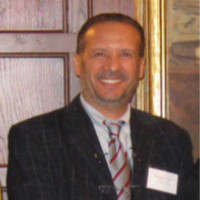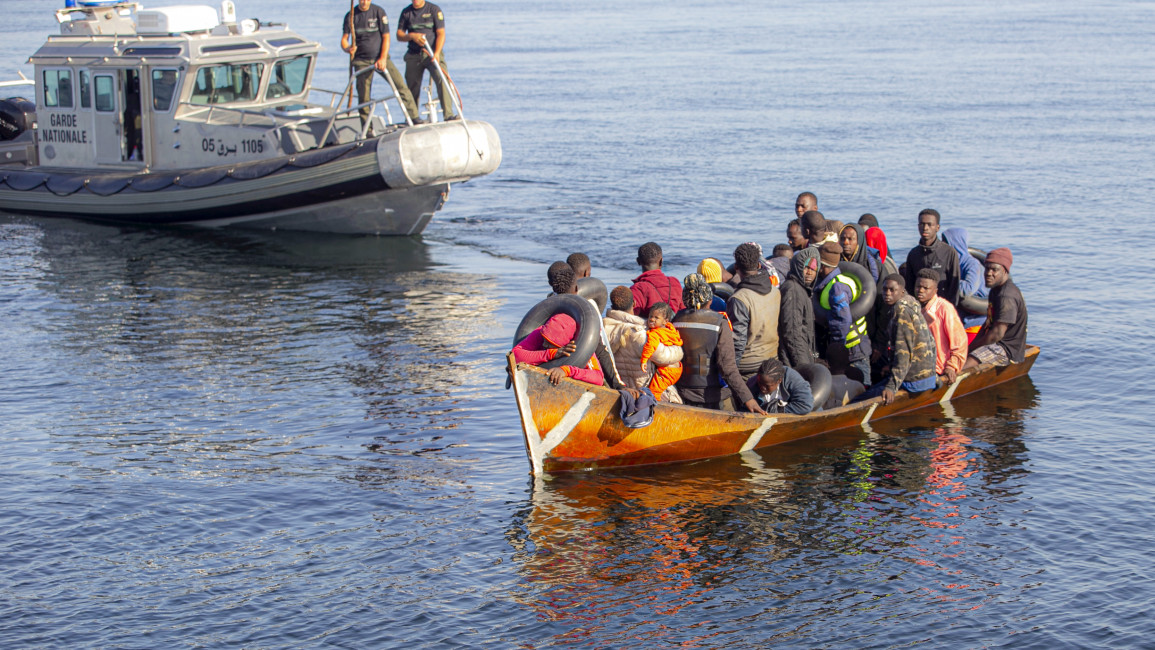
Trading migrants for money, is Tunisia the EU's new border police?
In light of the recent migrant boat tragedy that took place off the coast of Greece, and terrified by the increasing number of illegal migrants crossing the Mediterranean, early last week German and French Interior ministers visited Tunisia.
Their visit was only days after the meeting that top leaders of Italy, Netherlands and the EU had with Tunisian officials.
To help defuse the migration crisis in the Mediterranean, and to help free up the International Monetary Fund (IMF) loans to Tunisia, Italian Prime Minister Giorgia Meloni and her Dutch counterpart, Mark Rutte, along with European Commission President Ursula von der Leyen, met with Tunisian President Kais Saied’s populist government.
These visits show how crucial Tunisia has become to the European Union (EU).
"This mounting migrant crisis is the main reason behind the EU's major financial package for the cash-strapped Tunisian government, despite warnings from civil society and human rights activists that this will only serve to enable President Saied's authoritarianism"
Under pressure from Italy, the EU is also compelling Tunisia – which is facing financial difficulties – to accept a bailout package of $1.9 billion from the IMF. This bailout is expected to salvage the flailing economy, which they fear may collapse and trigger unprecedented waves of irregular migration.
After the talks, the EU Commission President von der Leyen announced a $1.7 billion aid package to Tunisia to claw the deficit back. A further $115m will be provided to help Tunisia police its borders by combating human trafficking and hazardous sea crossings.
But Kais Saied unequivocally rejected IMF 'diktats' and said his economically stricken country will not act as a “border guard” for the EU.
Italy’s southern ports are the main arrival destination for Europe-bound migrants making the journey from North African countries like Algeria, Morocco, Libya and Tunisia. The Italian authorities claim that as many as 400,000 people are forecasted to enter Italy from the Maghreb in 2023.
Analysis: Every step of the way, Fortress Europe has deliberately created a hostile environment for migrants, resulting in a deadly cycle of violence that recently played out in Greece's boat tragedy
— The New Arab (@The_NewArab) June 26, 2023
✍️ @nadine_talaat https://t.co/pdYtE4x8bM
Tunisia has now become the most popular departure point for refugees and migrants from MENA and sub-Saharan Africa, particularly coastal cities like Sfax.
According to the Italian Interior Ministry, more than 53,800 have reached Italy since the beginning of the year - up from 21,700 at the same time last year.
As living conditions and future prospects deteriorate in Tunisia, many Tunisians themselves have been driven to undertake the dangerous sea journey to escape their country’s calamitous political and socio-economic situation.
This mounting migrant crisis is the main reason behind the EU’s major financial package for the cash-strapped Tunisian government, despite warnings from civil society and human rights activists that this will only serve to enable President’s Saied’s authoritarianism.
But deals like this, that outsource border management, do nothing to address the root causes behind why migrants risk their lives trying to make it to the northern shores of the Mediterranean.
Illegal migration is the result of the desire to escape severe persecution or repression, poverty and famine, or violence in the home country. Political instability in source countries also aggravates the migration flow. The greater the instability, the larger the flows.
And as the British-Somali poet, Warsan Shire, put it: “no one leaves home unless home is the mouth of a shark.”
Despite doing everything to keep these migrants, the role of these European former colonial powers in backing local autocrats and precluding genuine democratic rule and sustainable development in migrants’ countries of origin is often a major factor in creating the conditions for migration.
Given the pressures from the IMF, will the pledge of an aid package trigger a change of stance in Tunis?
Will the Tunisian authorities renege on their decision not to be the “border guard” for the EU as they are facing an acute economic crisis and the country about to default on its foreign debt?
President Kais Saied is now stuck between Scylla and Charybdis.
Having suspended parliament, rewritten the constitution to monopolise power, and masterminded a crackdown on independent media and opposition figures, Saied has no legitimacy and no popular support among Tunisians. Stemming migration would be a herculean task.
It should be stated that Tunisian authorities at some point accepted a loan from the IMF, but then rejected it, with Saied declaring that the conditions imposed by the IMF such as cutting government food and basic goods subsidies along with the reform of indebted public-sector companies would be like putting a match to a powder keg.
Now, the economy is on the verge of collapse while disenchantment with Saied is at an all time high. This desperation may eventually push him to acquiesce to EU and IMF demands.
But this doesn’t change the reality that EU and IMF aid to Tunisia is unlikely to decrease the steady flow of migrants crossing the Mediterranean to seek refuge in Europe.
"As long as these root-causes are not tackled properly, tens of thousands of people will continue to risk it all to find a better life in Europe"
Instead, migration has become a political bargaining chip. The use of more force by border guards only normalises the violence migrants face.
The EU ought to come up with a better plan. A comprehensive plan to disrupt cartels and smugglers, promote stability, education, and employment opportunities and stop backing corrupt leaders in migrants’ home countries. This would help eliminate the need for such deadly journeys.
And as long as these root-causes are not tackled properly, tens of thousands of people will continue to risk it all to find a better life in Europe.
Dr. Abdelkader Cheref is an Algerian academic and a freelance journalist based in the US. As a former Fulbright scholar, he holds a PhD from the University of Exeter, Institute of Arab and Islamic Studies. His research interests are primarily politics in the MENA region, democratisation, Islam/Islamism, and political violence with a special focus on the Maghreb.
Follow him on Twitter: @Abdel_Cheref
Have questions or comments? Email us at: editorial-english@newarab.com
Opinions expressed in this article remain those of the author and do not necessarily represent those of The New Arab, its editorial board or staff.




